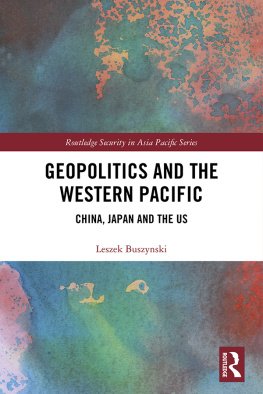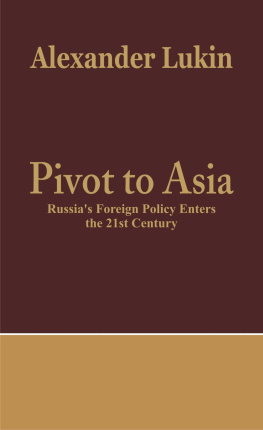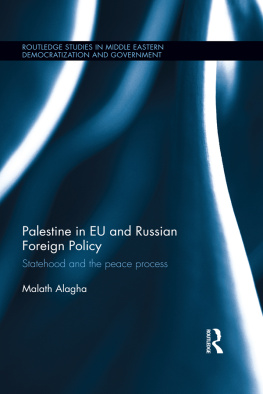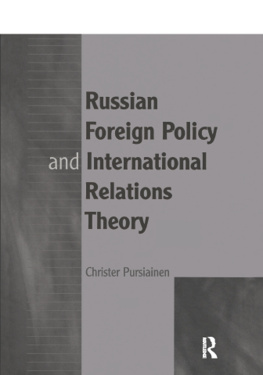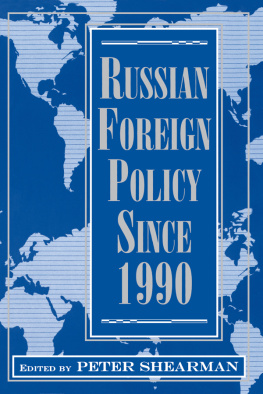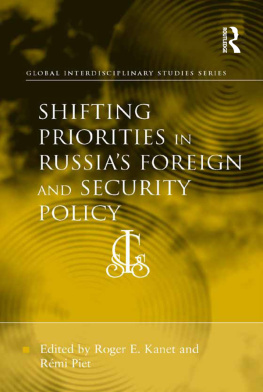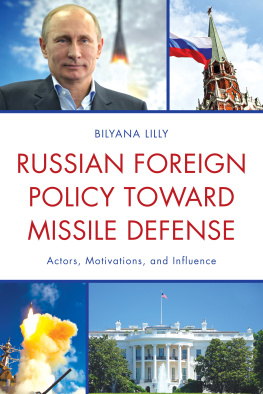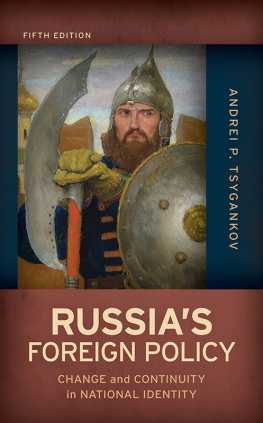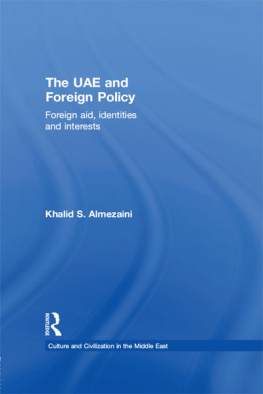Cover
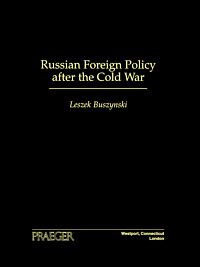
| title | : | Russian Foreign Policy After the Cold War |
| author | : | Buszynski, Leszek. |
| publisher | : | Greenwood Publishing Group |
| isbn10 | asin | : | 0275955850 |
| print isbn13 | : | 9780275955854 |
| ebook isbn13 | : | 9780313047688 |
| language | : | English |
| subject | Russia (Federation)--Foreign relations. |
| publication date | : | 1996 |
| lcc | : | DK510.764.B87 1996eb |
| ddc | : | 327.47 |
| subject | : | Russia (Federation)--Foreign relations. |
Page i
This page intentionally left blank.
Page ii
This page intentionally left blank.
Page iii
Russian Foreign Policy after the Cold War
Leszek Buszynski

Page iv
Library of Congress Cataloging-in-Publication Data
Buszynski, Leszek.
Russian foreign policy after the cold war/Leszek Buszynski.
p. cm.
Includes bibliographical references and index.
ISBN 0-275-95585-0 (alk. paper)
1. Russia (Federation)Foreign relations. I. Title.
DK510.764.B87 1996
327.47dc20 96551
British Library Cataloguing in Publication Data is available.
Copyright 1996 by Leszek Buszynski
All rights reserved. No portion of this book may be
reproduced, by any process or technique, without the
express written consent of the publisher.
Library of Congress Catalog Card Number: 96551
ISBN: 0-275-95585-0
First published in 1996
Praeger Publishers, 88 Post Road West, Westport, CT 06881
An imprint of Greenwood Publishing Group, Inc.
Printed in the United States of America 
The paper used in this book complies with the
Permanent Paper Standard issued by the National
Information Standards Organization (Z39.481984).
10 9 8 7 6 5 4 3 2
Page v
Contents
Acknowledgments | vii |
Introduction: The Foreign Policy of Disorientation | ix |
Acronyms | xiii |
| Foreign Policy Values | |
| Russia and the West | |
| Russia and the Near Abroad: The CIS as a Regional Organization | |
| Russia and the Near Abroad: Bilateralism and Subregionalism | |
| Russia and the Asia-Pacific Region | |
| The Future | |
Selected Bibliography | |
Index | |
Page vi
This page intentionally left blank.
Page vii
Acknowledgments
In view of the turbulent and confusing domestic political scene in Russia since the Soviet Union began disintegrating, the writing of this book has not been an easy task. For this reason, I would like to acknowledge my debt to my Russian friends and colleagues who assisted me by obtaining material, by helping me negotiate the labyrinthian Russian bureaucracy in arranging interviews, or by spending long, stimulating hours with me in fruitful and illuminating discussion, testing and evaluating ideas and interpretations of events. Without the assistance of Slava Urlyapov, Valerii Nikolaev, Anatolii Khazanov, Valerii Titov, and many others, this book would not have been possible. My debt to my wife, Mariko, should be emphasized here for her encouragement, moral support, and her many practical contributions.
Page viii
This page intentionally left blank.
Page ix
Introduction: The Foreign Policy of Disorientation
Brave person (smelyi chelovek) repeated V.A.Isaev of Moscows Institute of Oriental Studies when he heard that the author had embarked on a study of Russian foreign policy. How, indeed, is it possible to speak of a Russian foreign policy? The many domestic critics of Boris Yeltsins government would argue that the term foreign policy implies a sense of coherence and consistency as well as defined objectives and an identifiable strategy to attain them. These qualities, they would argue, have been noticeably absent in Moscows relations with the outside world which have been characterized by confusion, an appalling carelessness and paralyzing conflict. They argue that what passes as foreign policy is really a series of conflicting and ill-considered moves that reflect the personal values of the actors concerned and certainly not the community. Domestic criticisms of Yeltsins relations with the outside world have indeed been bitter and reflect the continuing battle over economic reform that was unleashed in 1992. Nonetheless, despite such criticism this study proceeds on the basis that there has been an identifiable foreign policy pursued by the Moscow government in the sense that broadly consistent positions have been adopted over the most critical issues though not without some conflicts. Domestic critics may point to the conflicts that occur within government, or between government and society, over foreign policy but they cannot deny a coherence of purpose to which they respond with varying degrees of opposition. For those critics the problem is not the absence of a foreign policy but a particular orientation, which they regard as unsuitable, inappropriate, or ill-founded.
The theme of this work is the foreign policy of a disoriented state. Disorientation has been an unfortunate characteristic of Russian society since its painful emergence from the Soviet cocoon in 1992. Few other societies have faced the traumatic shock of being relocated in new borders with the old institutions destroyed as suddenly as Russia has. As the Council of Foreign and
Page x
Defense Policy has noted in a study of foreign policy options, Russia has been reduced to four-fifths of the size of the Soviet Union, with less than half of the population.1 Russias neighbors in the Baltic, the west, and the south were previously constituent republics of the Soviet Union subordinate to Moscow. What were once domestic borders have become international frontiers that demand an adjustment of the behavioral patterns of the past centuries. Devising a foreign policy to match the requirements of a new geopolitical predicament would be a protracted and agonizing process even in the best of times. These, however, are not the best of times for Russia. The process of formulating foreign policy has been made all the more difficult by the difficult economic and social transformation to which Russia has been exposed.
Russia, indeed, has been subjected to the dislocatory effects of economic and political reform which have compounded the sense of bewilderment and disorientation. Russian society has been thrown into what could be the most profound crisis in its history. The Russian state has been traditionally authoritarian and paternalistic, promising a social stability underpinned by the Orthodox Church. The different social strata were bound by the obligation of service either to the landlord or the state on the basis of serfdom or the
Next page

